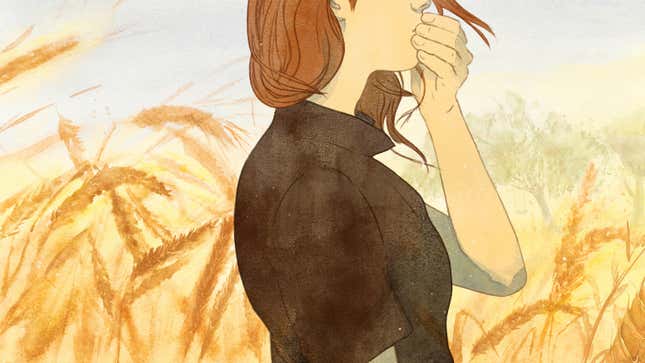I Killed My Southern Accent and a Piece of Myself With It
My voice screamed out my class status and everything I was trying to leave behind, I thought. Now I want it all back.
In Depth
Illustration: Angelica Alzona
In that awkward space between teenager and adult, I decided that I hated my Southern accent, and the only thing to do was to rip my voice from my throat and replace it with something unremarkable. I wanted to be someone worth hearing, and I thought I needed to shed my Southern-ness, the dead giveaway that I was unqualified for the life I desperately wanted.
Before that, as a child, I found pride in my identity. I dreamed of raising Black Angus cattle, like my Uncle Ted, scratching out a big vegetable bed, making a home on an acre or two of grass for barefoot children to run across until their soles itched. There was no sound I loved more than my grandmother’s accent; thick, sweet, warm, unencumbered. When the phone rang, she answered with a throaty “mmmyyehllo?” My own voice reflected my family’s past and present—part Northern Mississippi, part Tennessee delta, all Southern as hell.
As my childhood receded, I began to realize that outside of our region, Southerners were often dismissed as uncultured and uneducated, ignorant and narrow-minded. I became less enamored with my roots, growing into one of those adolescents who didn’t quite fit anywhere. I was country enough to belong to Future Farmers of America, where I had a knack for judging cows, but I didn’t live on a proper farm—my parents settled us into a small house in a neighborhood behind the highway. I was also, in the way that a lot of disaffected teenagers are, ready to leave behind my tiny town in West Tennessee and start a new life in some far-off metropolis, in the sort of place that doesn’t require the name of the state to follow it for you to know its location.
My accent was a symbol of everything I thought I hated about my life in the rural South. My conflation of vowels connoted ignorance. My elongation of final consonants gave away my public school education, a rough-around-the-edges nature that I feared would disqualify me from being a lauded magazine writer. My voice screamed out my class status—there was enough; there was not any extra. To have more than just enough, I thought I would have to talk less country. So, I killed a piece of myself. I am ashamed of it, but I am more ashamed I tried to kill that part of someone else.
I met Emily in college at Middle Tennessee State University, a school known for its affordability and its proximity to Nashville. She was determined to work for the student newspaper, which is where I spent most of my waking hours, and she decided we should be friends, and so we were. She, unlike me, embraced her roots. She was—and still is—always good for a tube of lipstick or a Steel Magnolias reference or a vat of homemade mac n’ cheese. Early in our friendship, her mother asked where I was from, assuming it was somewhere up north; I beamed with pride at the mistake.
Emily is two years younger. I knew she cared about my opinion, and her admiration soothed my simmering insecurities, though not enough to prevent me from foisting them upon her. I advised her to be more like me, and exorcise her signature Manchester, Tennessee accent, to shove it down far into herself and be molded by forces like capitalism and whiteness. It was advice that I lobbed at her throughout our college years, sometimes earnestly, more often by poking fun at her doubled-down vowel sounds. It was a bit, it was our bit, I insisted to myself, taking that pained look on her face as part of the schtick. It was not fun for her, and deep down, I knew it.
During my senior year, I took it upon myself to “help” Emily prepare for a broadcast she had to deliver for a class. I would be the Henry Higgins to her Eliza Doolittle, never mind that I, too, was an Eliza. In a photo I took that night, she’s frozen in time, her brow furrowed, literally clutching the string of pearls around her neck. Her lips are pursed, concentrating on pronunciation.
“I,” I say, firmly.
-

-

-

-

-

-

-

-

-

-

-

-

-

-

-

-

-

-

-

-

-

-

-

-

-

-

-

-

-

-

-

-

-

-

-

-

-

-

-

-








































